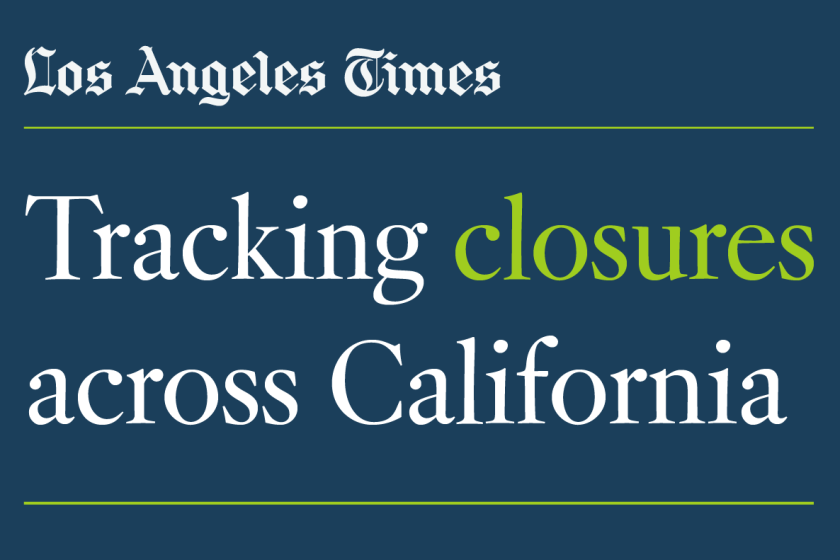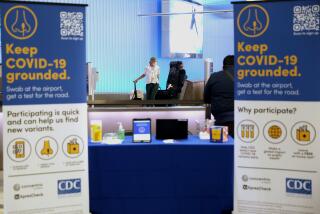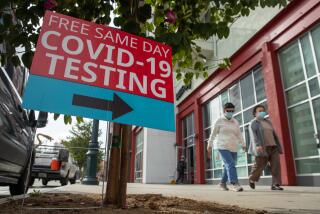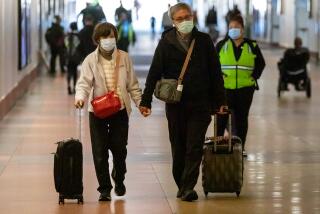L.A. coronavirus cases dropping so low that officials could soon seek to reopen schools
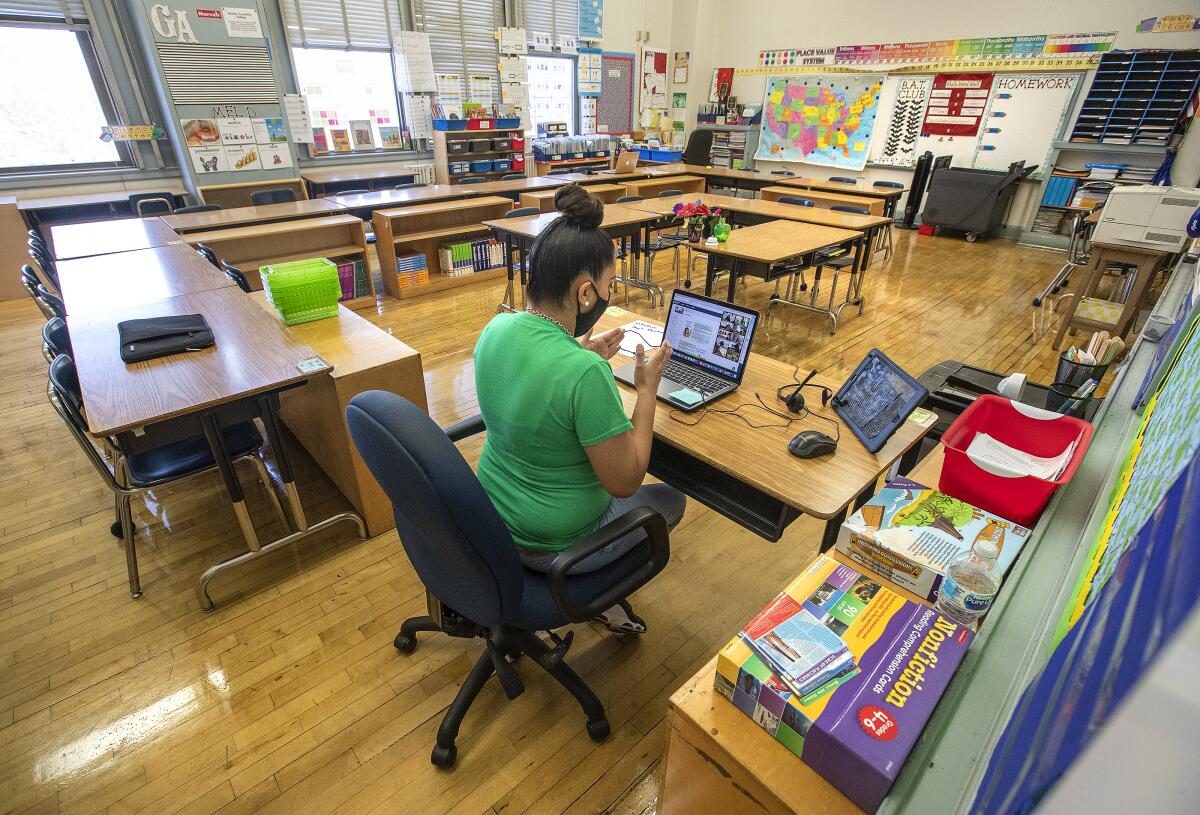
Los Angeles County’s chief medical officer said Thursday that new coronavirus cases may soon drop enough to allow officials to apply for waivers to reopen elementary schools.
During an online news conference, Dr. Jeffrey Gunzenhauser noted that waivers can be sought to reopen schools when cases are below 200 for every 100,000 people for two weeks.
Over the last two weeks, officials have reported 27,739 new cases, which amounts to 275 per 100,000, but Gunzenhauser said that number was steadily dropping.
“We do believe we could get down to under 200 in the near future,” he said.
The Los Angeles Unified School District resumed classes this week, but instruction was being done remotely. There are extensive requirements for applying for waivers, and county health officers must approve applications.
The reaction from education officials was cautious but hopeful.
Debra Duardo, superintendent for the L.A. County Office of Education, called the update a “heartening development.”
“Not all districts are going to apply for a waiver, especially right away,” Duardo said. “Each will make the best decision based on the needs of their families and communities. There are so many factors that need to be considered. The health and safety of students and staff must come first and there needs to be buy-in from labor partners.”
Also to be considered is “how nimbly can the district switch to and from different learning models?” Duardo said.
L.A. school board member Jackie Goldberg said the district needs to have in place its plan for an ambitious internal testing and contract-tracing program so parents can have confidence in the safety of campuses.
“We’ve said from the beginning, we’re going to follow the science,” Goldberg said. “We’re going to begin our testing first with the nurses and the people who are going to do the testing, but we’re going to do some baseline testing before we open any schools, because we don’t want to put people in harm’s way.”
Parts of southeast L.A. County, which she represents, have been considered hot spots for infection, but that’s not necessarily true of all areas in her district.
Local conditions could be taken into consideration for a particular campus, said both Goldberg and school board member Nick Melvoin.
“In light of the frustrations people are feeling with online learning, we’re doing all we can to get kids back,” Melvoin said. “I do think we should look at waivers as soon as it’s feasible, on a case-by-case, school-by-school basis.”
Gunzenhauser gave a generally optimistic briefing on the state of the pandemic in L.A. County. He said the length of average hospital stays for COVID-19 has declined from a few months ago, probably because of improved understanding of how to treat the disease.
He said more young people are now being hospitalized for the disease, and they also are likely to recover more quickly than older patients.
But he warned that younger people are dying from the disease, and the percentage of people ages 18 to 29 hospitalized for COVID-19 has doubled to 10%.
Of the approximately 5,400 people in the county who have died of COVID-19, 440 were ages 18 to 41 with no underlying health conditions, he said.
The underlying conditions that make patients most at risk for severe illness and death are hypertension, which is common among those 65 and older, and diabetes, a condition that affects 10% of the county’s population, he said.
He also reported a positive trend in skilled nursing homes, where widespread testing and protective equipment are now stemming infections.
To contain the spread of COVID-19, parks, restaurants and stores are slowly reopening.
The county now has about nine nursing home deaths a week, down two-thirds from a high of 27 in April, he said.
The number is “still too many,” he said, “but it does show our measures are working.”
There have been 13,120 COVID-19 infections among healthcare workers and first responders in the county. Two-thirds of them are women, nearly half are Latino, and more than half are between the ages of 18 and 40, he said.
More than 37% of those infected were nurses.
More to Read
Sign up for Essential California
The most important California stories and recommendations in your inbox every morning.
You may occasionally receive promotional content from the Los Angeles Times.
